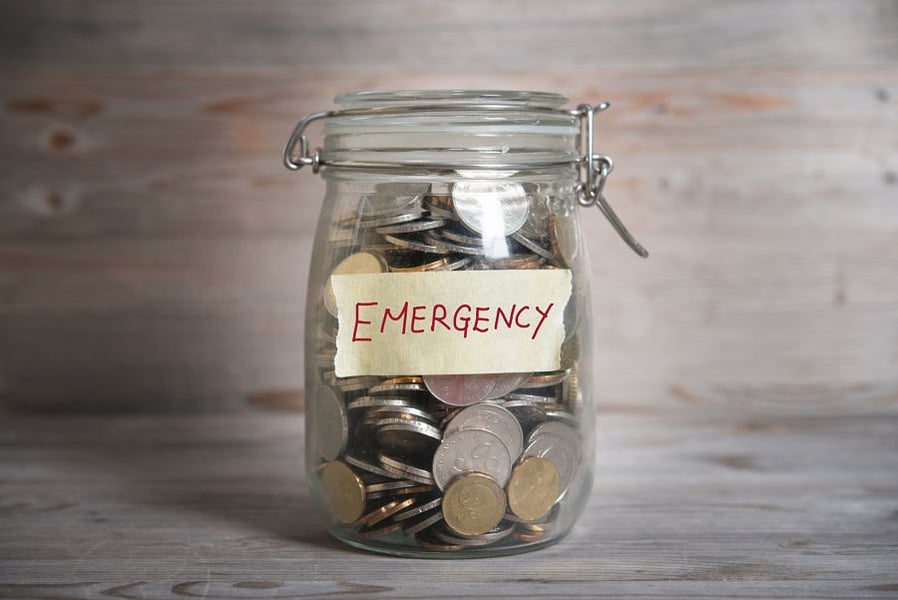

Although they say they embrace financial wellness, too many Americans lack sufficient funds for a rainy day.
According to a recently released study from Edward Jones and Morning Consult, more than nine in 10 Americans (93%) say that financial wellness is imperative. But close to half (43%) say they don't feel financially stable and almost a third of respondents (29%) have less than $500 in their emergency savings fund.
When it comes to defining the term financial wellness," the report showed most Americans see it as having no anxiety over monthly bills (61%), having enough money to take care of their family (57%) and having no debt (55%).
Unfortunately, the survey’s respondents felt anything but well about the levels of their current emergency savings funds, with 28% reporting feeling stressed, 25% saying they felt concerned and 25% feeling anxious. Edward Jones recommends Americans have three to six months of living expenses in an emergency savings fund. However, nearly two in five (37%) respondents expect theirs to last no more than a month, according to the study.
“It's perhaps unsurprising that so many Americans emphasize the importance of reaching financial wellness, especially given the turbulent times we’ve been facing, but our research reveals a huge opportunity for people to actually achieve it,” Meagan Dow, senior strategist at Edward Jones, said in a statement.
“Regardless of whether you have the ability to take small steps or big steps, most of us can be making progress toward building confidence and financial security, which starts with an emergency fund,” Dow added.
Nina Lloyd, president and CEO of Opus Financial Advisors, part of Advisor Group, said the results of the survey weren’t shocking, but were unfortunate, because they show that people understand the importance of financial wellness but are putting it on the back burner.
“Like physical wellness, financial wellness requires time, commitment, discipline and sacrifice," Lloyd said. "Financial wellness may not come easy, but the rewards are worth the effort.
"If you’d like to make a positive change, start small," she suggested. "Share your realistic goals with a trusted friend or advisor who isn’t afraid to hold you accountable. Track your spending and automate the important — prioritizing debt reduction and saving for the future.”
One way to get financially fit is to engage a financial advisor, according to the Edward Jones survey. The study showed those who work with a financial advisor are more than twice as likely to feel very confident about their financial wellness than those who don't (40% versus 18%, respectively).
Furthermore, the survey found that 79% of those who use financial advisors have an emergency savings fund that has at least $1,000 — compared to only 36% of those who don't use a financial advisor.
“It is essential that individuals set aside an emergency fund for unexpected expenses and financial emergencies. When I meet with my clients, I generally recommend an amount equal to 3 to 6 months of expenses depending on the scenario. For households with a steady dual income and no foreseen major expenses, a 3-month safety net is an appropriate goal to set. However, households that rely on one source of income should target six months to protect against a disruption of income,” said Jared P. Remesz, wealth advisor at SageView Advisory Group.

Executives from LPL Financial, Cresset Partners hired for key roles.

Geopolitical tension has been managed well by the markets.

December cut is still a possiblity.

Canada, China among nations to react to president-elect's comments.

For several years, Leech allegedly favored some clients in trade allocations, at the cost of others, amounting to $600 million, according to the Department of Justice.
Streamline your outreach with Aidentified's AI-driven solutions
This season’s market volatility: Positioning for rate relief, income growth and the AI rebound
